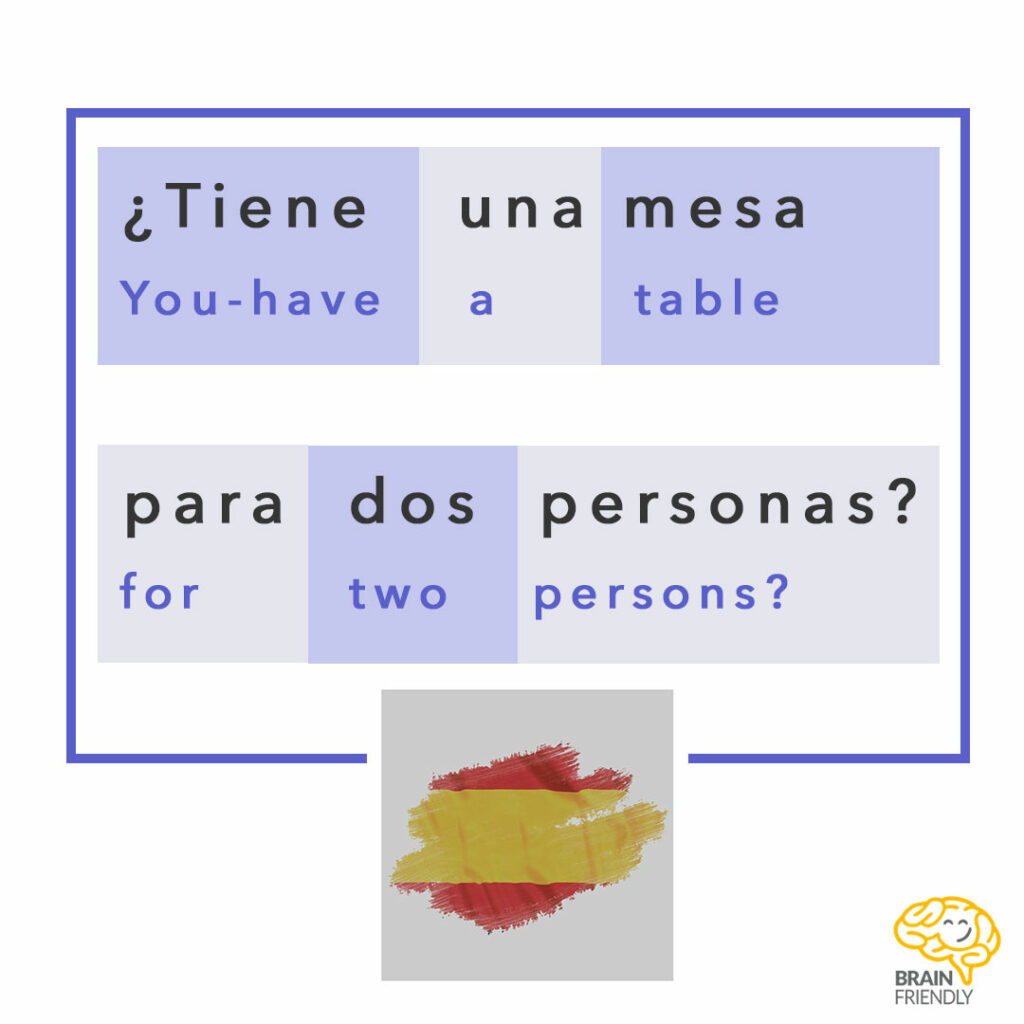With my foreign language skills, I have already traveled to more than 20 countries and met people from all over the world. I became more open with each passing day, interested in other cultures and languages, and made friends with different cultures. This brings me to today’s question: how can language learning help break down prejudices?
The boundaries of my language mean the limits of my world.
Ludwig Wittgenstein
Everyone has prejudices – including me
“They are materialistic, obsessed with guns and only eat fast food” is what most people in Europe think of Americans. An image that has been shaped mainly by the media’s portrayal of the United States as seen in other countries.
Even if you don’t want to – we have prejudices. All people, even those with the best intentions, have them. In our globalized society, we deal more and more often with people from other cultures and countries. Pigeonholing goes hand in hand with this internationalization. Of course, in one culture or another, there are inhumane practices or even those that violate human rights. You do not have to and should not accept these under any circumstances because that has nothing to do with openness.
But there are many other behaviors, traditions, and things that are deeply rooted in the cultures and are welcome to meet with transparency. If one does not tolerate or accept these, one speaks of prejudices of the kind that you can reduce through language learning. Studies and experience reports show that people with good foreign language skills tend to be more prejudice-free and open to what is different. This mindset usually happens unconsciously.
Through communication to mutual understanding
I believe that in order to break down prejudices, it is essential for people to talk to each other. Only through personal communication and interaction can you build an understanding for each other. Foreign language skills are necessary for this. English, for example, can be a common language level. If people can talk to each other (through foreign language skills), they can exchange and discuss. For us humans, communication has very great importance. Language helps us to overcome barriers and to understand people better. This is how you get closer and maybe even grow together.
Student exchange programs prove it
More than 30 years ago, the European student exchange program Erasmus started and attracted more than four million interested people from the European Union since its birth in 1987. Students are very grateful for these experiences and would not want to miss them. They changed them, made them grow, and discover so many new and exciting things. Most of them made friends for life and deepened their language skills enormously in a short time.
93 percent of exchange students can imagine living abroad. Just as many say that they learned to appreciate the value of different cultures during their stay. As a result, they naturally built up a network of acquaintances during their months abroad, which they can still use after graduation. These contacts increase tolerance for other cultures and ways of life and can also be used professionally.
“Erasmus is almost certainly the most efficient program for bringing EU citizens closer to common Europe. The openness of the graduates to the coexistence of different nations is even reflected in their private lives. Around one-third of Erasmus students have a partner of another nationality. Normally, only 14 percent in this age group live with partners from other countries.”
Says an article in “Die Presse.”
Reading between the lines – idioms, word usage, etc.
The words, expressions, and idiosyncrasies of our native language broadly define how we see and understand the world. Without a doubt, a Finn and an Arab, for example, would each describe the world differently. We can also see the cultural difference in the languages. While Arabic is unlikely to describe snow in different ways, Finnish has 40 words and expressions of it. An American and a Hawaiian also express themselves differently. In Hawaiian, for example, there are over 200 expressions for “rain.”

Idioms are also an expression of our culture. Here is an example of two idioms that differ in German and English:
Imagine an English teenager is in love but doesn’t want to tell his parents (yet) who he’s dating. Then he makes excuses to not have to come out with the truth – just like his German fellow sufferer. In German, this kind of behavior is not called “to beat about the bush” as it is here, but “to talk around the hot porridge.”
This idiom initially meant “to lurk around the hot porridge like a cat,” with the metaphorical cat looking for the coolest place to lick. So the expression means that the interlocutor hesitates and talks around the subject instead of making precise statements for fear of getting burned.
Source: https://www.geo.de/geolino/redewendungen/7176-rtkl-englische-redewendung-beat-about-bush
Culture, history, and local conditions influence the languages of this world and reflect our country-specific characteristics. Isn’t it exciting to learn about these backgrounds?
Foreign language learning
“Reading between the lines” is easiest through language learning with complete sentences and texts. Choose texts that have appeared in the original in the foreign language of your choice. Now translate the text word-for-word into the native language (Vera F. Birkenbihl called this process de-coding). By gradually deciphering the foreign language, you compare it with your native language. This way, you learn intuitively and get to know the “soul” of the foreign language. You can find out more about the Birkenbihl Approach and de-coding here: The Birkenbihl Approach.

By the way, language learning also has a positive influence on the feeling for one’s mother tongue: Those who deal with other cultures will learn to appreciate the subtleties of their own culture. After all, anyone who studies the customs, traditions, language, body language, manners, and values of other cultures will inevitably get to know and distinguish their own culture better.
Those who go through the world with interest in languages will make friends with people from all over the world. These friendships make us appreciate and respect others. In our view, language plays a significant role in overcoming certain prejudices and stereotypes. Knowledge of foreign languages not only brings the obvious added value of being able to converse with a counterpart speaking another language. Anyone who learns a foreign language will also:
- open up new perspectives
- better understand the foreign as well as their own culture
- train the brain
- increase self-confidence
- promote professional advancement
- experience fun with the language and
- spend the stay abroad more entertaining in the truest sense of the word
